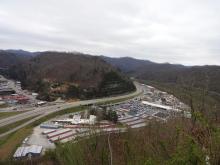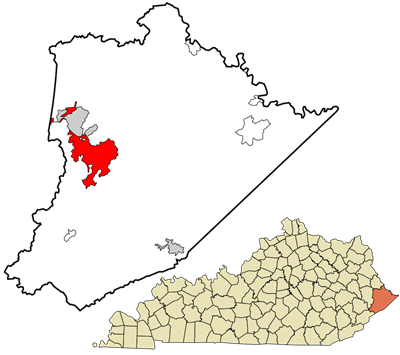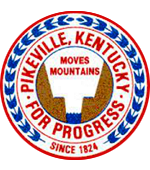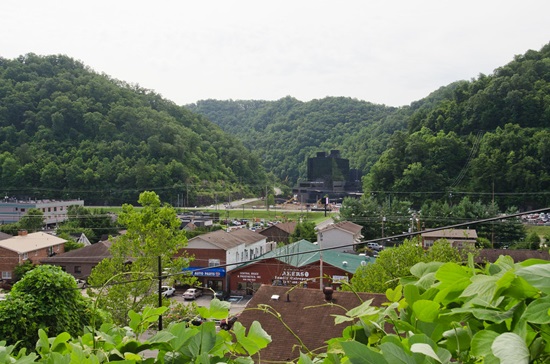
Fast, affordable Internet access for all.

Pikeville, Kentucky (pop. 7,300) sits about 150 miles southeast of Lexington, in the extreme eastern part of the state. Today, after almost a decade of fighting with Internet Service Provider (ISP) Optimum about service so consistently poor that the city finally sued the provider, it’s working on an alternative: a partnership that will see the local government build new citywide fiber infrastructure and lease it to an operating partner.
A Tale As Old As Time
Publicly available data shows that, historically, about two-thirds of the city of Pikeville can take Internet service from Inter Mountain Cable - a regional provider with about 25,000 subscribers across Kentucky, West Virginia, and Virginia. Likewise, Optimum (formerly Suddenlink) offers cable service to about the same number of households. AT&T’s DSL service covers a little more than a quarter of town. Those living in the northern half of the city generally have better service options than those living in the southern half.

The path the city of Pikeville has taken began almost 15 years ago. In 2009, the local government signed a new, 10-year franchise agreement with Suddenlink. But when Altice (originally a French telecommunications company) bought Suddenlink back in 2015 to build its portfolio here in the United States, things quickly took a turn for the worse.
The ISP’s parent company immediately began instituting cost-cutting measures across the provider's footprint as a way of driving up profits. As a result, outages became commonplace, and often lasted a day or longer. Customer service calls featured long waits and often ended with little or no resolution to the problem. Residents complained: to the ISP, to the city, and on social media. At the same time as Optimum’s speeds and service and customer care were circling the drain, price hikes were sending monthly costs sky high.
"I'll see people post a speed test and they'll post the results on social media and it is always so much slower than what they're paying for," [resident Anthony] Childers said at the time. "Sometimes it's 10 or 15 percent of what they're paying for; they should all be paying 10 or 15 percent of their bill at that point . . . Slowly the price went up also since I became a customer. The price nearly doubled in three and a half years from [$]60 a month to around [$]100 a month."
The situation deteriorated enough that the city commissioners asked the provider to come to a meeting, but once there local leaders got only platitudes and promises to improve, with “[t]he company's representative [telling] the crowd they have already installed some equipment and plan to add more. They have also worked to improve customer service since last fall.” In 2022, Altice rebranded Suddenlink as Optimum.
Fed Up

For city leaders, enough was enough. That same spring, the city formalized a public-private partnership with Inter Mountain Cable, a private local company that first registered with the FCC in 2000. Under the deal, the ISP - through its GearHeart Fiber brand - would build the network and get exclusive rights to operate it for 15 years, with the city retaining ownership. The City Council unanimously agreed to the deal.
That summer, the city sent a letter to Optimum, informing the provider that it was in breach of the franchise agreement. For more than two years, the ISP denied the charges and ignored the city.
Finally, in the fall of 2022, the city sued Optimum and its parent company Altice, citing a plethora of clear and present problems with the state of service delivered by the cable company:
Altice’s strategy is to purchase providers, like Suddenlink, that serve areas like Pikeville where few if any viable alternatives exist for phone, cable, and [I]nternet service, and then engage in severe cost-cutting that significantly reduces the quality of services offered.
Because of the dearth of alternatives, Altice also raises rates on its captive customers even as the service quality declines.
By 2017, Altice USA CEO Dexter Goei bragged that Suddenlink had taken out at least half of the targeted costs, with more cuts to come. “We’re turning the screws a little more,”Goei said, despite the fact that the low hanging cost cutting fruit had been picked and further reductions would severely impair service. At the same time, Goei crowed that Suddenlink’s 47.3% profit margins were the highest in the U.S. cable industry.
Forging Ahead
While it fights with Optimum about the franchise agreement, the city hasn’t been waiting around to improve local connectivity. With its partnership with Inter Mountain Cable formalized, construction began in late 2020 and was projected to cost about $10.5 million. Phase 1 (of three), which went live in the late spring of 2023, will be paid for through the city’s restaurant tax, with that debt retired in 15 years. The city hasn’t identified funding for Phases 2 and 3 yet, but aims to pay each back in 10 years.

So far, the only disappointment to note on the new service option is the presence of data caps; it looks like subscribers to GearHeart Fiber’s service will be limited to 2-2.5TB of data use per month, and can only unlock unlimited data for an additional $30/month. On a modern fiber network, there’s rarely a good technical reason to impose data caps. Instead, we often see it with the biggest providers as a method of increasing revenue.
Today, residents of Pikeville who live in Phase 1 territories can subscribe to symmetrical service tiers from GearHeart Fiber at 350Mbps, 750Mbps, and 1Gbps for $60, $90, or $130/month. Optional voice and video services are available.
Header image of Pikeville Kentucky courtesy of Flickr user Howderfamily.com, Attribution-NonCommercial-ShareAlike 2.0 Generic
Inline map of Pikeville County and Pikeville Kentucky courtesy of Wikimedia Commons, Attribution 3.0 Unported
Inline image of downtown Pikeville courtesy of USDA photographer Lance Cheung, Public Domain Mark 1.0 Universal
